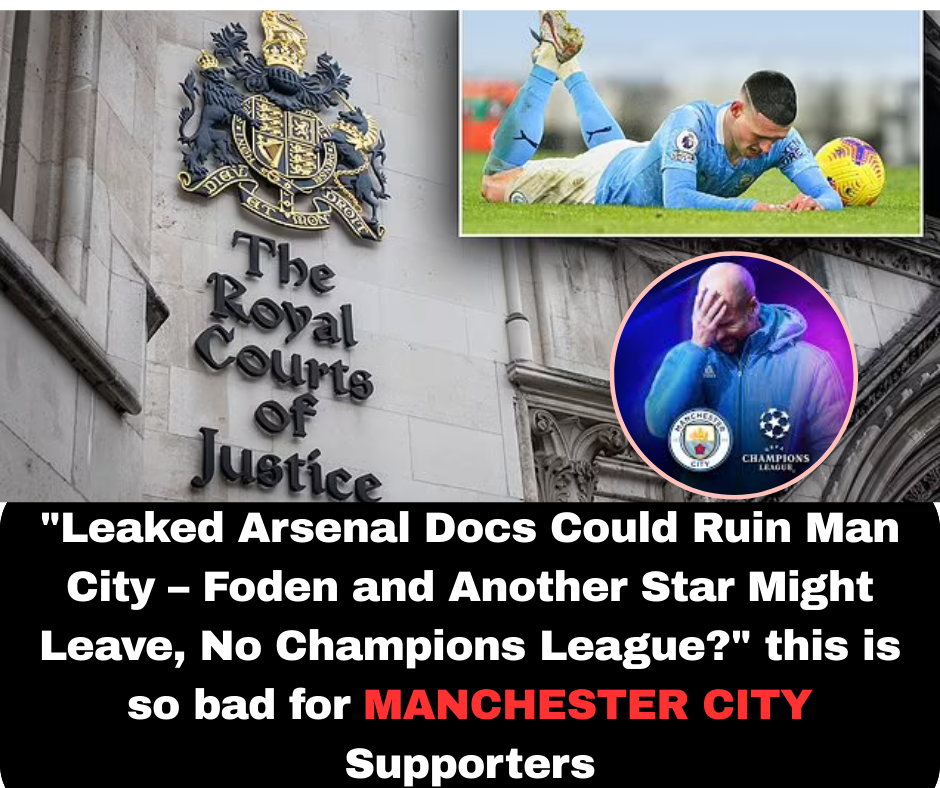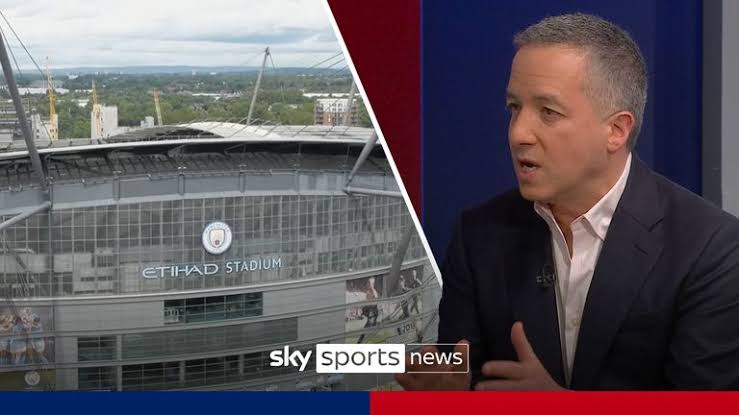City are saying that they need to be disclosed under the Premier League rules,

In a significant development that threatens to further strain relations between Manchester City and the Premier League, the reigning champions have intensified their legal battle over associated party transactions (APT) rules by requesting confidential documents from several clubs, including title rivals Arsenal.
This latest move represents another chapter in City’s long-running dispute with the Premier League over financial regulations—a conflict that has increasingly taken on both legal and competitive dimensions as the Abu Dhabi-owned club seeks to challenge what it perceives as unfair regulatory treatment.
Background: City’s Initial APT Challenge
Manchester City’s relationship with the Premier League’s financial rulebook has been contentious for years, but tensions escalated dramatically last June when the club took unprecedented legal action challenging the league’s APT rules. These regulations, designed to ensure transactions between clubs and entities associated with their owners occur at fair market value, have been a particular point of friction for City.
The initial legal challenge proved partially successful, with City managing to force amendments to the APT framework. However, despite these concessions, the club’s leadership remained dissatisfied with the modified regulations, believing they still placed City at a competitive disadvantage compared to certain rivals.
Industry experts suggest City’s persistent challenges to the Premier League’s financial architecture reflect deeper concerns about the regulatory landscape developing around elite football—one the club’s hierarchy may view as specifically designed to constrain their particular ownership model.
New Accusations Target Premier League Favoritism
Last month, Manchester City launched fresh accusations against the Premier League, claiming the current APT rules unfairly favor specific clubs—notably Arsenal, Everton, and Leicester City. According to City’s legal team, these clubs have received substantial competitive advantages through beneficial shareholder loan arrangements that the current regulatory framework fails to properly scrutinize.
The Times reported on April 29 that these clubs could now be compelled to disclose detailed information regarding their shareholder loans—a development that would represent a significant victory for City’s campaign for what they describe as “regulatory transparency.”
Expert Opinion: Documents “Critically Relevant”
Stefan Borson, a former financial adviser to Manchester City, has provided exclusive insights to Football Insider regarding the club’s latest legal maneuvers. Borson, whose experience with City’s financial operations grants him unique perspective on the dispute, believes the club will ultimately succeed in obtaining the confidential documents they’re demanding.
“They have got a case that those documents appear to be relevant,” Borson explained in his exclusive interview. “Have they got a case in terms of getting the disclosure of them? That will be a separate process. City are saying that they need to be disclosed under the Premier League rules, under rule B.18 I think it is.”
Borson expressed some reservation about whether City has identified the correct regulatory provision to compel disclosure, noting: “I’m not sure that is the right rule that will see them get these documents because, just from reading the rules, that seems to me to be a rule that allows the Premier League to ask for these documents as part of their processes but wouldn’t necessarily allow a party at arbitration to also get hold of those documents.”
He further elaborated on potential confidentiality hurdles: “And furthermore, even if the Premier League use those rules to get the documents, it’s not clear to me how the Premier League then has to hand those over to City because they appear to be confidential documents relating to certain clubs.”
Despite these technical challenges, Borson ultimately predicts City will gain access to the contested information: “That said, I do think that ultimately City will get hold of those documents to the extent that they’re relevant in the case. Now, it may be that they’re redacted in certain ways. That seems perfectly feasible, or that they’re summarised in terms of the key details that City are seeking, but it does seem like those documents will be critically relevant for the case.”
Timeline and Potential Impact
The legal process is expected to be lengthy. According to sources familiar with the proceedings, Manchester City will likely have to wait until early 2026 before a panel delivers its verdict on their second APT case. The formal trial is scheduled for mid-October 2025, giving both sides ample time to prepare their arguments and evidence.
This protracted timeline highlights the complex nature of the dispute and suggests that the Premier League is prepared to vigorously defend its regulatory framework against City’s challenges. For the league, maintaining the integrity of its financial rules is crucial to its broader governance objectives and the competitive balance it seeks to preserve.
Should City succeed in their latest legal endeavor, the ramifications could extend far beyond this individual case. A ruling in City’s favor might fundamentally alter how the Premier League regulates financial relationships between clubs and their owners—potentially creating new precedents that would influence the economic landscape of English football for years to come.
Arsenal Connection: The Competitive Dimension
City’s specific targeting of Arsenal’s financial documents adds an intriguing competitive element to this legal battle. The two clubs have emerged as principal title rivals in recent seasons, with their on-field competition now seemingly extending into boardroom and legal arenas.
Arsenal’s ownership structure under Kroenke Sports & Entertainment has evolved in recent years, with significant investment flowing into the club after a period of relative financial conservatism. City’s legal team appears particularly interested in examining how these relationships have been assessed under Premier League regulations.
Financial experts suggest City may be specifically investigating how Arsenal’s shareholder loans have been structured and whether they’ve received what City might characterize as preferential regulatory treatment. The disclosure of these documents could potentially reveal previously unpublicized details about Arsenal’s financial operations—information that would be valuable not just in legal proceedings but potentially in competitive strategic planning as well.
Broader Financial Regulation Context
This dispute unfolds against a backdrop of intensifying scrutiny of football’s financial regulations both domestically and internationally. The Premier League’s Profitability and Sustainability Rules (PSR) have generated significant controversy, with several clubs facing points deductions for breaches during the current season.
UEFA’s Financial Fair Play regulations continue to evolve as well, creating a complex regulatory landscape that clubs with wealthy ownership must navigate carefully. City’s aggressive legal strategy can be seen as part of a broader pushback against what some clubs perceive as increasingly restrictive financial governance in European football.
Industry analysts suggest the outcome of City’s challenge could influence the direction of financial regulation across European football, potentially determining whether the trend toward stricter controls continues or faces significant resistance from football’s financial elite.
On-field Implications: McAtee’s Future in Question
While the club focuses on its high-stakes legal battle, on-field matters continue to demand attention. Football Insider has revealed that promising midfielder James McAtee is considering his future at the Etihad amid interest from Nottingham Forest.
The 22-year-old talent, who has contributed seven goals in 26 appearances this season, is reportedly evaluating his career trajectory and may feel a move away from Manchester is necessary to secure regular first-team football. This potential departure highlights the perpetual challenge of balancing youth development with the imperative for immediate success at elite clubs.
McAtee’s current contract is set to expire in June 2026, and City’s management is keen to secure a contract extension to protect his market value—even if his long-term future lies elsewhere. This approach typifies the sophisticated player asset management strategy that has become central to City Football Group’s operational model.
The midfielder’s situation presents an interesting case study in how even financially powerful clubs must make difficult decisions regarding talented academy graduates who may not immediately break into star-studded first teams.
Premier League Power Dynamics
Manchester City’s continued legal challenges to Premier League regulations reflect broader tensions within the organization. The traditional power structure of English football’s top flight has been significantly disrupted by the emergence of clubs backed by sovereign wealth or billionaire owners with unprecedented financial resources.
These newer powers—with City at the forefront—have sometimes found themselves at odds with both the league’s established elite and its governing structures. The APT dispute represents just one front in a wider contest over how the Premier League should be governed and regulated in an era of increasingly global ownership.
Some industry observers characterize City’s legal strategy as part of a longer-term campaign to reshape the Premier League’s regulatory architecture in ways that would accommodate their particular business model. Others view it as a legitimate challenge to rules that may inadvertently favor certain ownership structures over others.
What’s clear is that the outcome will have significant implications for the Premier League’s ability to regulate its members and maintain competitive balance—a principle increasingly challenged by the financial disparities between clubs.
Regulatory Expert Analysis
Dr. Emma Richards, a sports governance specialist at the University of Manchester who has studied the evolution of football’s financial regulations, offers additional perspective on City’s legal strategy.
“What we’re seeing is a fundamental clash between different visions of how football should be financially regulated,” Dr. Richards explains. “The traditional model emphasized competitive balance through collective agreements, while newer owners often advocate for more market-based approaches that would give them greater freedom to invest.”
She continues: “City’s specific focus on other clubs’ shareholder loan arrangements is fascinating because it targets an area where the line between legitimate finance and potential circumvention of financial rules can be particularly blurry. The distinction between debt and equity in football club financing often involves complex structures that challenge straightforward regulatory classification.”
Dr. Richards believes the case could establish important precedents: “If City succeeds in forcing greater transparency around these transactions, it could fundamentally alter how clubs structure their financial relationships with owners. Conversely, if the Premier League successfully defends its regulatory framework, it would strengthen its authority to shape football’s financial landscape.”
Global Implications
The ramifications of City’s legal challenge extend beyond English football. As one of the flagship properties of the City Football Group—a multinational sporting conglomerate with clubs across five continents—Manchester City’s regulatory battles are closely watched by football administrators worldwide.
UEFA and other national leagues are particularly attentive to developments in the Premier League, which often sets precedents that influence global football governance. The outcome of this case could shape how multi-club ownership groups operate internationally and how financial relationships between associated entities are regulated.
Financial analysts note that the global nature of modern football investment means regulatory decisions in one jurisdiction increasingly have ripple effects across international football. This interconnectedness amplifies the significance of City’s chall














